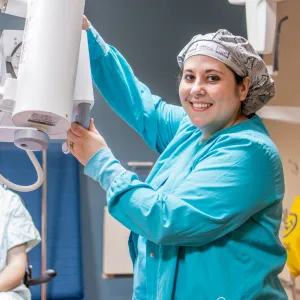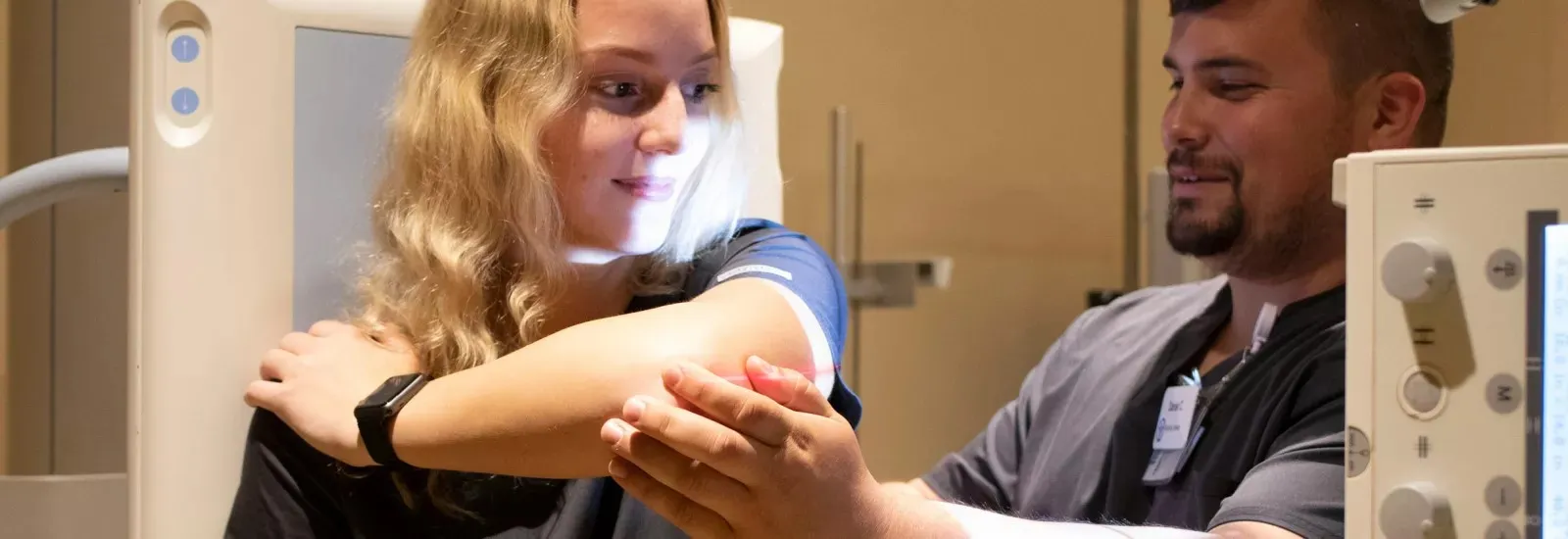School of Radiologic Technology
A career in Radiologic Sciences
Radiologic Science is a profession combining advanced technology and human compassion. Technologists use their knowledge of physics and human anatomy and physiology to create permanent medical images. This is a profession requiring dependability, maturity, and a caring nature. Radiologic services are offered in various settings such as hospitals, health care facilities, physician's offices, mobile imaging companies, industrial plants, research centers, government agencies, commercial sales, and marketing.
A person educated in this profession may specialize in their own area, as listed below or pursue careers as educators, researchers, consultants, or administrators. Constant growth in this field has created many new and exciting career opportunities. There are several choices to make when considering a career in radiologic technology.
Reid Health's radiography program will educate students in a hospital environment. Upon graduation and passing the American Registry of Radiologic Technologists certification examination, our graduates can work in General Radiography (X-Ray). With additional training or education, they then can specialize in a wide variety of modalities such as Computerized Tomography (CT), Magnetic Resonance Imaging (MRI), Nuclear Medicine, Sonography/ Ultrasound, Interventional Radiology, Mammography, and Radiation Oncology.
Students learn all examinations performed on the skeletal anatomy. They will have opportunity to learn additional skills to make them more marketable such as, venipuncture, EKG, basic lab procedures, vital signs, and patient assessment.
Salaries vary nationwide and are reflective of training, education, and experience. In this particular area, full-time entry level radiographers make $40,000-$45,000 annually. Employment opportunities have been affected by the economy; however, most graduates find the job market better than with most other professions.
Read what our grads are saying
So, are you considering a career in the radiologic sciences? If so, ask yourself:
- Why do I want to become a radiologic professional?
- Do I have enough concern and emotional strength to bear people's pain, even when they are at their worst? Do I retain my composure when everyone around me appears to be losing theirs?
- How effective am I in solving technical problems?
- Am I a "natural" in the courses required by this program? Will I enjoy these courses and recognize that they are basic to advanced professional credentials?
- Do I mind working some nights, emergency calls and weekend and holiday hours?
- What sort of study and work habits do I have? Am I able to maintain a commitment to something when its novelty wears off?
Your candid responses might help you determine whether a career in the radiologic sciences is a good option for you. If you do possess the intellectual and emotional traits necessary in this profession, this website might be helpful.
Our program's mission & goals
The mission of the Reid Health School of Radiologic Technology is to provide an educational experience that will develop a proficient, compassionate, and employable radiographer who will fulfill regional needs and serve as a positive example for the profession.
Goals
Goal #1 Our students will practice as entry-level radiographers. They will…
- …produce diagnostic radiographs.
- …employ applicable principles of radiation protection.
- …administer excellent patient care.
Goal #2 Our students will apply effective problem-solving and critical-thinking skills necessary for professional practice. They will…
- …modify imaging protocols to accommodate non-routine patient limitations.
- …evaluate radiographic images for diagnostic quality.
Goal #3 Our students will use appropriate communication skills at all levels within the healthcare environment. They will…
- …employ effective oral communication skills with professional staff and patients.
- …demonstrate effective written communication skills.
Goal #4 Our program will exceed effectiveness standards set by the Joint Review Committee on Education in Radiologic Technology.
- Students will complete the program within the appropriate timeframe.
- Graduates will pass the ARRT certification exam on the first attempt.
- Graduates pursuing a job in the field will be employed within 12 months.
- Alumni will be satisfied with their radiography program experience.
- Employers will be satisfied with the preparation of our graduates as entry-level radiographers.
Accreditation
The radiography program is accredited by the Joint Review Committee on Education in Radiologic Technology (JRCERT).
20 N. Wacker Drive, Suite 2850
Chicago, IL 60606-3182
Email: mail@jrcert.org
The program's current accreditation award is eight years. General program accreditation information and the current accreditation award letter can be found here.
Effectiveness data
Click HERE to view the data.
Join us!
To apply to the School of Radiologic Technology, please fill out the form found here and either mail it with the application fee to 1100 Reid Parkway, Richmond, IN 47374 ATTN: School of Radiologic Technology or email it to either Program Director Chris Werking or Clinical Coordinator Kendra Gilley.
Scholarship available
The Vicki Puterbaugh Clinton Scholarship Fund honors Vicki Puterbaugh Clinton, who graduated from our program in 1969 and served as our department's chief technologist from 1975-77. Vicki was passionate about her work and always found joy in serving her colleagues and patients. Up to two full-tuition scholarships will be awarded annually to students accepted into the Reid Health School of Radiologic Technology. The scholarship is renewable one time with documentation of continued participation in the program. Students should demonstrate financial need. Go here to apply.
What our grads are saying
Graduates of the School of Radiologic Technology often move
on to join Reid Health. A few such graduates share their stories of what it's
been like to be part of the Reid team.
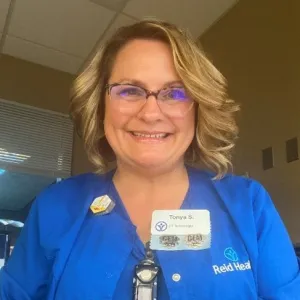
Tonya S.
Longtime CT tech still at Reid thanks to family environment, excellent patient care
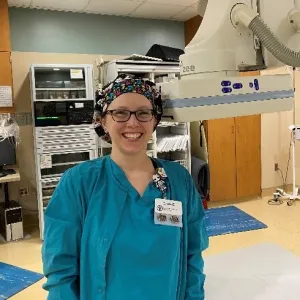
Casey E.
It’s the people – patients and co-workers – that keep Casey at Reid
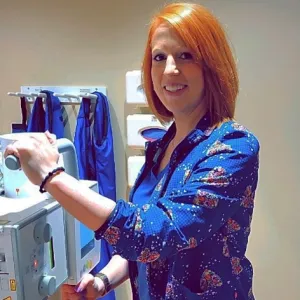
Brandi S.
Working at Reid Health is a childhood dream come true
